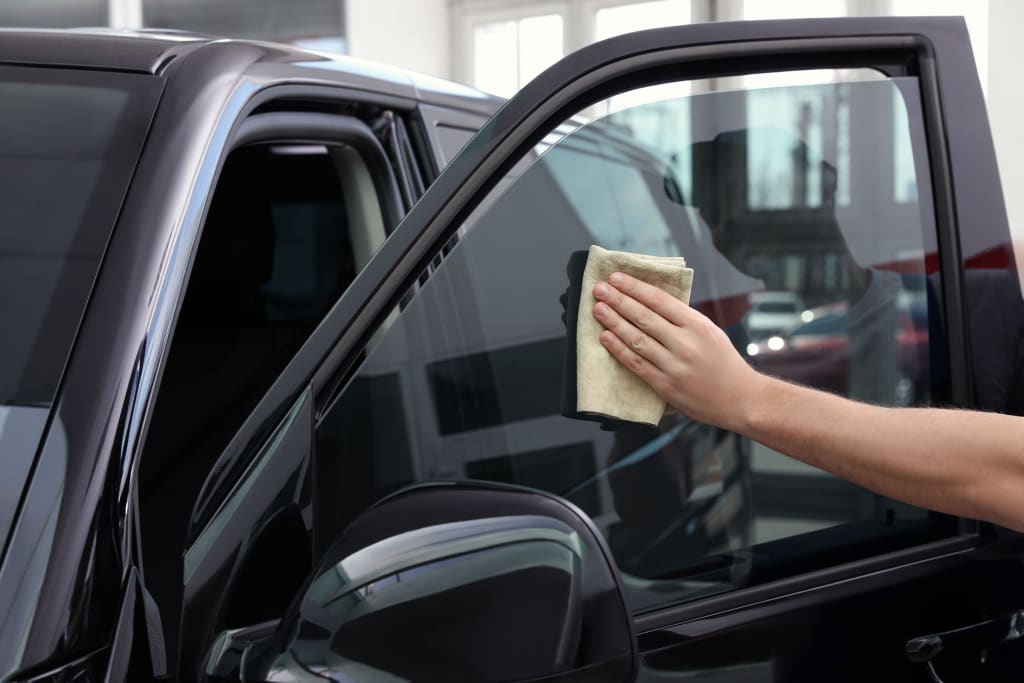Keep your Car Cool ! Understand Window Tinting Laws Across the US
Window Tint

You're probably familiar with the benefits of window tinting: it can keep your car cool in the summer, improve your privacy, and even protect your interior from the sun's harmful rays. But did you know that window tinting laws vary from state to state?
In some states, it's completely legal to have any level of tint on your windows. In others, there are limits on how dark your windows can be, or what kind of film can be used. And in a few states, it's illegal to have any tint on your windows at all!
So before you get that new window tint installed, be sure to check out your state's laws. You don't want to end up with a ticket—or worse, a broken window!
Background on Window Tinting Laws in the US
Each state has its window tinting laws, and it can be tricky to keep track of them all. In some states, you're allowed to have a certain percentage of visible window tint. In others, there are restrictions on the color of tint you can use. And in still others, there are rules about how much window tint you're allowed to have on your car.
Fortunately, we've put together a handy guide that covers the window tinting laws in all 50 states. So whether you're looking to get your windows tinted for the first time, or you're just trying to stay up-to-date on the latest regulations, our guide has you covered.
Which States Allow Tinted Windows and What Level?
To be able to tint your car windows, you should know which states allow window tinting and at what level. The states that allow any level of window tinting are:
All Window Tinting Laws by State


Why Should You Get Your Windows Tinted?
You should get your windows tinted for a variety of reasons. The most obvious one is to keep your car cool in the summertime. But window tinting also offers privacy and security. It can keep the interior of your car from fading in the sun, and it can even reduce the risk of being in a car accident.
Window tinting laws vary from state to state, so it's important to do your research before you get your window tint distributor. In some states, you're required to have a certain percentage of visible light transmission (VLT) on your windows. In other states, there are no restrictions at all.
It's also important to make sure that you choose a reputable company to do the work. There are a lot of window tinting scams out there, so do your research and make sure you're getting the best possible deal.
Do You Need a Permit to Get Your Windows Tinted?
Have you been thinking about getting your windows tinted but have questions about the rules and regulations? Good for you for doing your research. Depending on the state, there may be certain laws and regulations you have to follow when it comes to window tinting.
Most states require that you have a permit to tint windows in your car. These permits usually stipulate the type, intensity, and opacity of the window tint that can be applied and also require a minimum of 50% VLT (Visible Light Transmission).
In some states, a medical permit may be required if your window tint’s VLT is below the minimum required by law. The medical permit must state that you need a lower VLT due to medical conditions such as skin disorders or eyesight issues.
No matter what state you live in, make sure to check out their regulations when it comes to window tinting before taking your car into a shop—it’s always better safe than sorry!
How to Properly Remove Window Film
Not sure how to remove window tinting film properly? That's understandable. Luckily, it's not as hard as it looks. The first step is to start by taking off the top layer of the film.
To do this, use a razor blade, though you might want to buy something specifically designed for this type of job since a regular razor blade might be too sharp and scratch the window.
Once you've removed the top layer, you'll need to soak the adhesive side with a solution that's designed to soften it before you can peel off the rest. Try using a mild detergent mixed with warm water and then apply it over the affected area with a sponge or cloth. This will help break down and remove the remaining adhesive residue quickly and easily.
After applying your mixture, let it sit for about 10 minutes before using a plastic scraper—aka putty knife or razor blade—to scrape off any remaining film from the glass surface. Once all of the adhesives have been taken care of, use a glass cleaner to wipe down your window one last time and make sure no residue remains before you can call yourself an expert at window tinting removal!
Frequently Asked Questions About Window Tinting Laws
You've probably got some questions about window tinting laws in all fifty states. Here are a few that we hear all the time:
- Is it illegal to drive without any tint on my windows?
No, it is not illegal to drive a vehicle without any tint on the windows. However, some states have enacted laws that limit the amount of light that can pass through tinted windows. Be sure to check your state's laws before adding any tinting.
- Are there medical exemptions for window tinting laws?
Yes, some states have medical exemptions for certain types of window tints. Check with your local DMV or motor vehicle department to see if this is allowed in your state.
- Do I need a permit to install window tints?
It depends on where you live and the type of window tint you are going to be using. In some states, you will need to obtain an official permit before beginning the installation process.
Conclusion
In short, window tinting is a great way to keep your car cool and your skin protected, but it's important to understand the laws in your state before you get started. Depending on where you live, there may be restrictions on the darkness of the tint or the location of the tint on the car.
About the Creator
Arun kumar
We are providing multiple guest post on high qualtity websites.






Comments
There are no comments for this story
Be the first to respond and start the conversation.